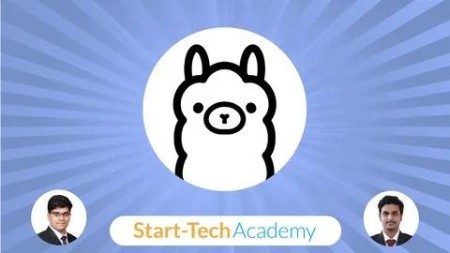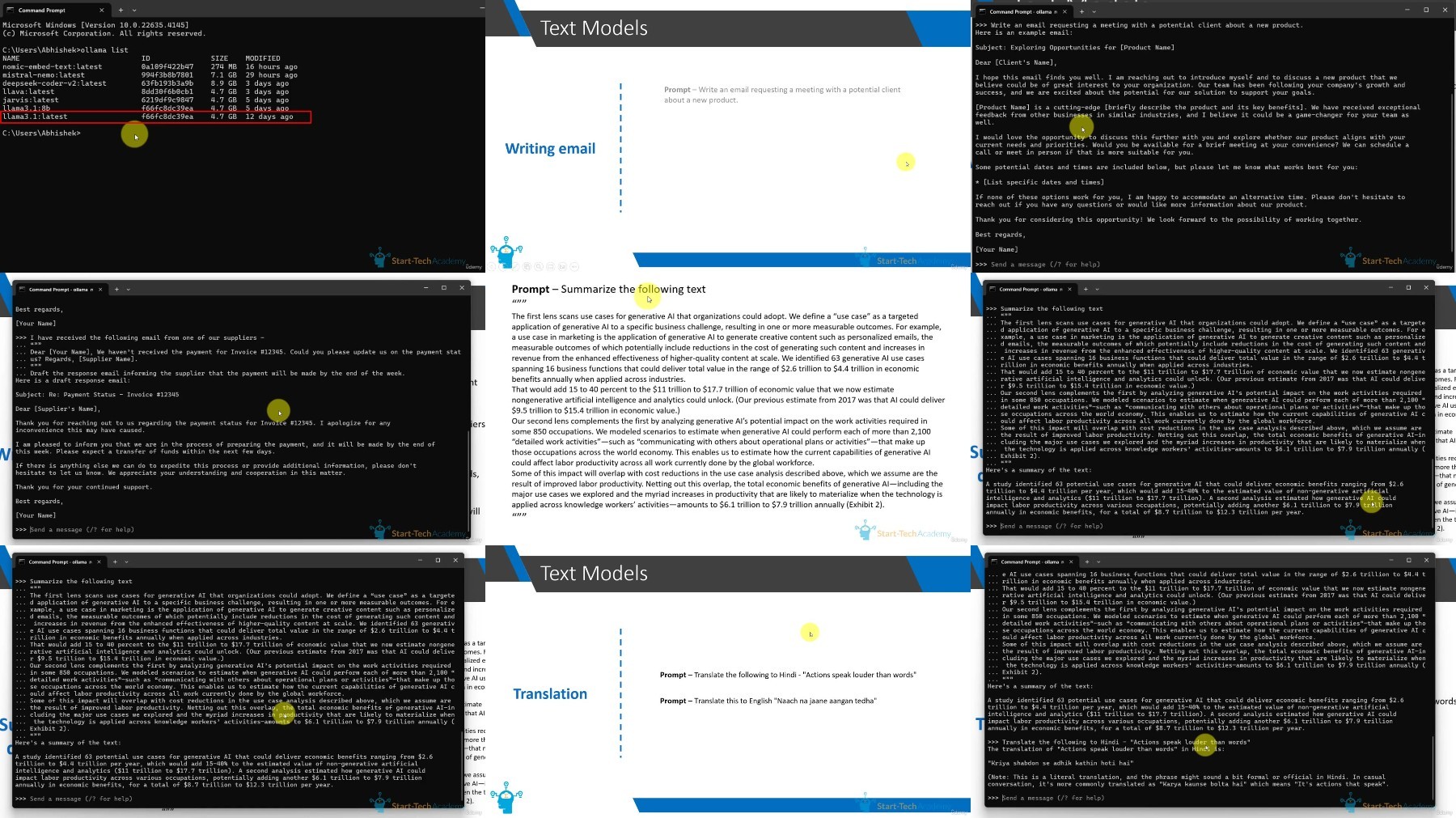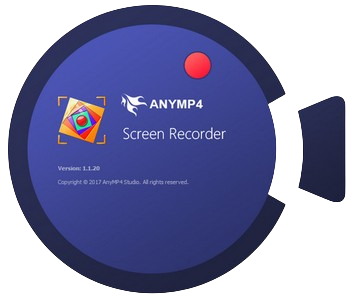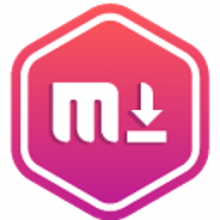Most Commented
Zero To Hero In Ollama: Create Local Llm Applications




Description material

Zero To Hero In Ollama: Create Local Llm Applications
Published 9/2024
MP4 | Video: h264, 1920x1080 | Audio: AAC, 44.1 KHz
Language: English | Size: 1.29 GB | Duration: 3h 5m
Run customized LLM models on your system privately | Use ChatGPT like interface | Build local applications using Python
What you'll learn
Install and configure Ollama on your local system to run large language models privately.
Customize LLM models to suit specific needs using Ollama's options and command-line tools.
Execute all terminal commands necessary to control, monitor, and troubleshoot Ollama models
Set up and manage a ChatGPT-like interface using Open WebUI, allowing you to interact with models locally
Deploy Docker and Open WebUI for running, customizing, and sharing LLM models in a private environment.
Utilize different model types, including text, vision, and code-generating models, for various applications.
Create custom LLM models from a gguf file and integrate them into your applications.
Build Python applications that interface with Ollama models using its native library and OpenAI API compatibility.
Develop a RAG (Retrieval-Augmented Generation) application by integrating Ollama models with LangChain.
Implement tools and agents to enhance model interactions in both Open WebUI and LangChain environments for advanced workflows.
Requirements
Basic Python knowledge and a computer capable of running Docker and Ollama are recommended, but no prior AI experience is required.
Description
Are you looking to build and run customized large language models (LLMs) right on your own system, without depending on cloud solutions? Do you want to maintain privacy while leveraging powerful models similar to ChatGPT? If you're a developer, data scientist, or an AI enthusiast wanting to create local LLM applications, this course is for you!This hands-on course will take you from beginner to expert in using Ollama, a platform designed for running local LLM models. You'll learn how to set up and customize models, create a ChatGPT-like interface, and build private applications using Python—all from the comfort of your own system.In this course, you will:Install and customize Ollama for local LLM model executionMaster all command-line tools to effectively control OllamaRun a ChatGPT-like interface on your system using Open WebUIIntegrate various models (text, vision, code generation) and even create your own custom modelsBuild Python applications using Ollama and its library, with OpenAI API compatibilityLeverage LangChain to enhance your LLM capabilities, including Retrieval-Augmented Generation (RAG)Deploy tools and agents to interact with Ollama models in both terminal and LangChain environmentsWhy is this course important? In a world where privacy is becoming a greater concern, running LLMs locally ensures your data stays on your machine. This not only improves data security but also allows you to customize models for specialized tasks without external dependencies.You'll complete activities like building custom models, setting up Docker for web interfaces, and developing RAG applications that retrieve and respond to user queries based on your data. Each section is packed with real-world applications to give you the experience and confidence to build your own local LLM solutions.Why this course? I specialize in making advanced AI topics practical and accessible, with hands-on projects that ensure you're not just learning but actually building real solutions. Whether you're new to LLMs or looking to deepen your skills, this course will equip you with everything you need.Ready to build your own LLM-powered applications privately? Enroll now and take full control of your AI journey with Ollama!
Overview
Section 1: Introduction
Lecture 1 Introduction
Lecture 2 Installing and Setting up Ollama
Lecture 3 Model customizations and other options
Lecture 4 All Ollama Command Prompt/ Terminal commands
Section 2: Open WebUI - ChatGPT like interface for Ollama models
Lecture 5 Introduction to Open WebUI
Lecture 6 Setting up Docker and Open WebUI
Lecture 7 Open WebUI features and functionalities
Lecture 8 Getting response based on documents and websites
Lecture 9 Open WebUI user access control
Section 3: Types of Models and their capabilities
Lecture 10 Types of Ollama models
Lecture 11 Text models
Lecture 12 Vision models
Lecture 13 Code generating models
Lecture 14 Create custom model from gguf file
Section 4: Using Ollama with Python
Lecture 15 Installing and Setting up Python environment
Lecture 16 Using Ollama in Python using Ollama library
Lecture 17 Calling Model using API and OpenAI compatibility
Section 5: Using Ollama with LangChain in Python
Lecture 18 What is LangChain and why are we using it?
Lecture 19 Basic modules of Langchain
Section 6: Creating RAG application using Ollama and LangChain
Lecture 20 Understanding the concept of RAG (Retrieval Augmented Generation)
Lecture 21 Loading, Chunking and Embedding document using LangChain and Ollama
Lecture 22 Answering user question with retrieved information
Section 7: Using Tools and Agents with Ollama models
Lecture 23 Understanding Tools and Agents
Lecture 24 Tools and Agents using LangChain and Llama3.1
Section 8: Conclusion
Lecture 25 About your certificate
Lecture 26 Bonus lecture
AI enthusiasts who want to build and run customized LLM models privately on their local systems.,Python developers seeking to integrate large language models into local applications for enhanced functionality.,Data scientists who aim to create secure, private LLM-powered tools without relying on cloud-based solutions.,Machine learning engineers looking to explore and customize open-source models using Ollama and LangChain.,Tech professionals who want to develop RAG (Retrieval-Augmented Generation) applications using local data.,Privacy-conscious developers interested in running AI models with full control over data and environment.

What you'll learn
Install and configure Ollama on your local system to run large language models privately.
Customize LLM models to suit specific needs using Ollama's options and command-line tools.
Execute all terminal commands necessary to control, monitor, and troubleshoot Ollama models
Set up and manage a ChatGPT-like interface using Open WebUI, allowing you to interact with models locally
Deploy Docker and Open WebUI for running, customizing, and sharing LLM models in a private environment.
Utilize different model types, including text, vision, and code-generating models, for various applications.
Create custom LLM models from a gguf file and integrate them into your applications.
Build Python applications that interface with Ollama models using its native library and OpenAI API compatibility.
Develop a RAG (Retrieval-Augmented Generation) application by integrating Ollama models with LangChain.
Implement tools and agents to enhance model interactions in both Open WebUI and LangChain environments for advanced workflows.
Requirements
Basic Python knowledge and a computer capable of running Docker and Ollama are recommended, but no prior AI experience is required.
Description
Are you looking to build and run customized large language models (LLMs) right on your own system, without depending on cloud solutions? Do you want to maintain privacy while leveraging powerful models similar to ChatGPT? If you're a developer, data scientist, or an AI enthusiast wanting to create local LLM applications, this course is for you!This hands-on course will take you from beginner to expert in using Ollama, a platform designed for running local LLM models. You'll learn how to set up and customize models, create a ChatGPT-like interface, and build private applications using Python—all from the comfort of your own system.In this course, you will:Install and customize Ollama for local LLM model executionMaster all command-line tools to effectively control OllamaRun a ChatGPT-like interface on your system using Open WebUIIntegrate various models (text, vision, code generation) and even create your own custom modelsBuild Python applications using Ollama and its library, with OpenAI API compatibilityLeverage LangChain to enhance your LLM capabilities, including Retrieval-Augmented Generation (RAG)Deploy tools and agents to interact with Ollama models in both terminal and LangChain environmentsWhy is this course important? In a world where privacy is becoming a greater concern, running LLMs locally ensures your data stays on your machine. This not only improves data security but also allows you to customize models for specialized tasks without external dependencies.You'll complete activities like building custom models, setting up Docker for web interfaces, and developing RAG applications that retrieve and respond to user queries based on your data. Each section is packed with real-world applications to give you the experience and confidence to build your own local LLM solutions.Why this course? I specialize in making advanced AI topics practical and accessible, with hands-on projects that ensure you're not just learning but actually building real solutions. Whether you're new to LLMs or looking to deepen your skills, this course will equip you with everything you need.Ready to build your own LLM-powered applications privately? Enroll now and take full control of your AI journey with Ollama!
Overview
Section 1: Introduction
Lecture 1 Introduction
Lecture 2 Installing and Setting up Ollama
Lecture 3 Model customizations and other options
Lecture 4 All Ollama Command Prompt/ Terminal commands
Section 2: Open WebUI - ChatGPT like interface for Ollama models
Lecture 5 Introduction to Open WebUI
Lecture 6 Setting up Docker and Open WebUI
Lecture 7 Open WebUI features and functionalities
Lecture 8 Getting response based on documents and websites
Lecture 9 Open WebUI user access control
Section 3: Types of Models and their capabilities
Lecture 10 Types of Ollama models
Lecture 11 Text models
Lecture 12 Vision models
Lecture 13 Code generating models
Lecture 14 Create custom model from gguf file
Section 4: Using Ollama with Python
Lecture 15 Installing and Setting up Python environment
Lecture 16 Using Ollama in Python using Ollama library
Lecture 17 Calling Model using API and OpenAI compatibility
Section 5: Using Ollama with LangChain in Python
Lecture 18 What is LangChain and why are we using it?
Lecture 19 Basic modules of Langchain
Section 6: Creating RAG application using Ollama and LangChain
Lecture 20 Understanding the concept of RAG (Retrieval Augmented Generation)
Lecture 21 Loading, Chunking and Embedding document using LangChain and Ollama
Lecture 22 Answering user question with retrieved information
Section 7: Using Tools and Agents with Ollama models
Lecture 23 Understanding Tools and Agents
Lecture 24 Tools and Agents using LangChain and Llama3.1
Section 8: Conclusion
Lecture 25 About your certificate
Lecture 26 Bonus lecture
AI enthusiasts who want to build and run customized LLM models privately on their local systems.,Python developers seeking to integrate large language models into local applications for enhanced functionality.,Data scientists who aim to create secure, private LLM-powered tools without relying on cloud-based solutions.,Machine learning engineers looking to explore and customize open-source models using Ollama and LangChain.,Tech professionals who want to develop RAG (Retrieval-Augmented Generation) applications using local data.,Privacy-conscious developers interested in running AI models with full control over data and environment.

Warning! You are not allowed to view this text.
Warning! You are not allowed to view this text.
Warning! You are not allowed to view this text.
Join to our telegram Group
Information
Users of Guests are not allowed to comment this publication.
Users of Guests are not allowed to comment this publication.
Choose Site Language
Recommended news
Commented


![eM Client Pro 9.2.1735 Multilingual [Updated]](https://pikky.net/medium/wXgc.png)






![Movavi Video Editor 24.0.2.0 Multilingual [ Updated]](https://pikky.net/medium/qhrc.png)

